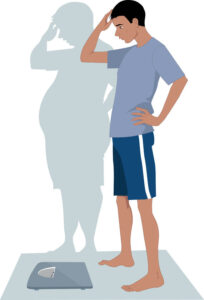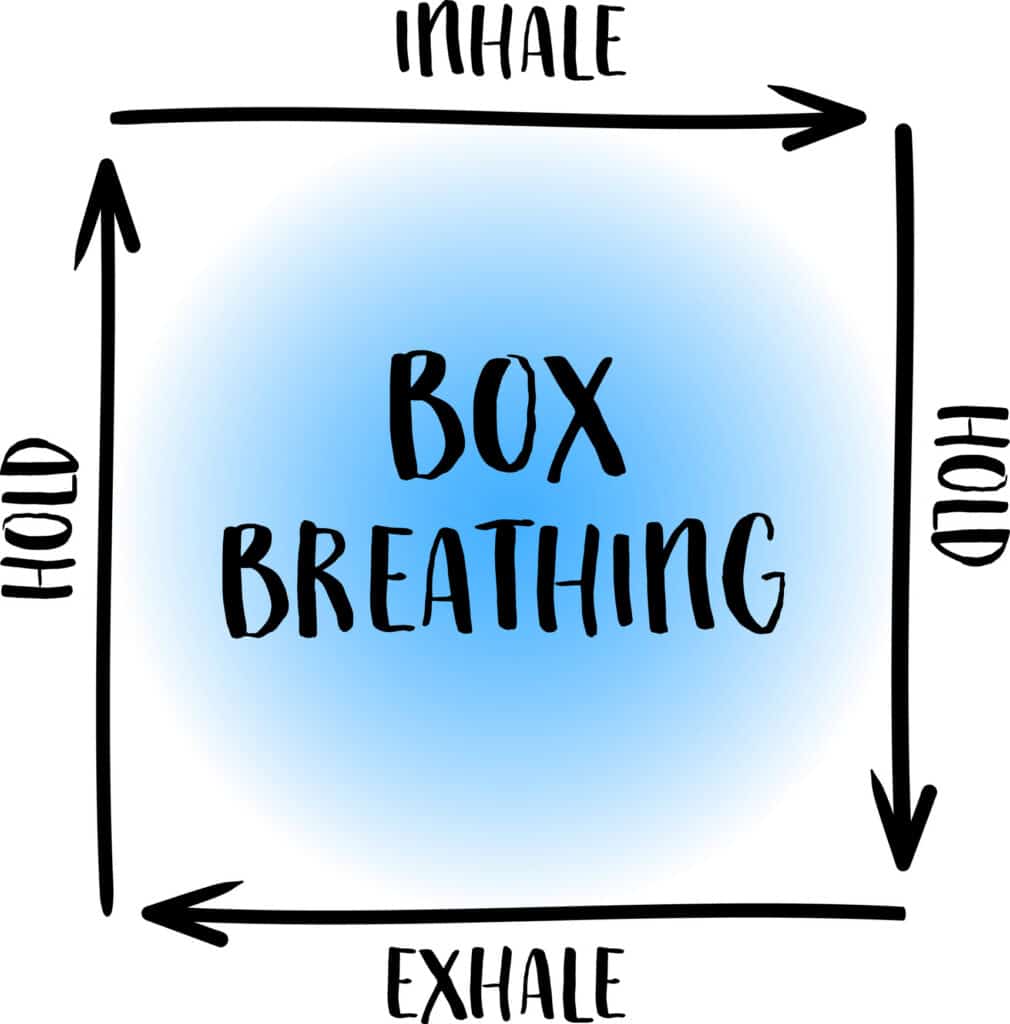Extreme fat loss causes an emotional hangover that lingers–a quality certified personal trainers would do well to readily recognize. I used to weigh nearly 300 pounds and I still think about it quite often.
When I share this fact with a new client, unfailingly they look at me with astonishment. “I never would’ve guessed,” they say. Really? In my mind, it’s painfully obvious.
As a fitness professional, I do my best to motivate and guide my clients toward their goals, conveying the best information I have to optimize their programs, and encouraging them to adopt a growth mindset. But, truthfully, I still battle with body image myself.
My Extreme Fat Loss Journey Began With Unrealistic Goals

When I started out losing weight, I had this mental image of the body I wanted to achieve. It was lean and muscular, with 6 to 8 abs, well-defined pecs, and broad shoulders capped with cannonballs.
While my mental image may have been unrealistic, it was nevertheless the image I strived to achieve. There were certain realities that I didn’t expect to have to deal with, like loose skin, adapting my habits after I lost the weight to support weight maintenance, and finding a new identity.
For as long as I can remember, I thought of my body as my biggest flaw and character weakness.
I was always overweight, but when puberty hit I developed obesity. Along with that came jokes at my expense from my peers, lack of self-confidence, depression, and frustration at my situation all on top of the general angst that comes with adolescence.
My senior year of high school, I decided to change. In my mind, I reached a tipping point where I could either embrace obesity and adopt the persona of a jolly fat guy, or I could change. I chose to change.
Health Decisions are a Recurring Choice
People erroneously believe that a decision like this only needs to be made once. If life were a movie or TV show, it may work that way. The scene would feature me having an epiphany, followed by a training montage. Cut to a year later, I’ve achieved the body of my dreams and all my problems are solved.
Unfortunately, life doesn’t work that way. I made that same decision to change again and again. It required daily recommitment in one form or another.
Finding the “Why”
What did losing weight symbolize to me? Conquering myself. It meant happiness, confidence, and high self-esteem. I thought that the root of my misery was my weight, not realizing that there was also an immense amount of mental and emotional work to do. Losing weight and gaining happiness do not necessarily go hand-in-hand.
Weight Loss Didn’t Fix Me
During my freshman year of college, I reached my lowest weight, 172, but I still didn’t like what I saw in the mirror because it wasn’t the mental image I set for myself.
- I still felt awkward in social situations
- I still felt unsure of myself
- I wasn’t bursting with confidence
In fact, I felt more lost because the perception my peers had of me was at odds with how I perceived myself. They saw a guy who was conscious of what he ate, rarely indulged, and was at the gym most nights. Wow, he’s really healthy.
I did those things because I was terrified of gaining the weight back, and I saw these new social situations (parties, dates, attention from girls) I found myself in as contingent upon my body size. The aspect of my body I tried to hide the most was the loose skin around my midsection and chest.
The loose skin that resulted from my weight loss hindered my ability to recognize the immense effort and commitment such a journey required. To me, it was just a reminder that I wasn’t able to manifest that mental image of my journey’s end.
No 6-pack. No well-defined chest. I was never the finished product.
This is not to say that I didn’t enjoy the countless benefits of such a profound change, but it wasn’t the holy grail of self-help. Once I had lost the weight, I had nothing behind which to hide. My lack of self-confidence was due to the fact that I didn’t value myself the way I should, which seems counterintuitive because it takes a lot of time and energy to invest in yourself the way I did.
I didn’t lose weight for my health. I did it because of the misery I felt.
“Until You Find Something to Fight For, You Settle for Something to Fight Against.”
Over 10 years later, having kept the weight off, it’s only been in the last few years that I’ve chosen to fight for myself. Rather than approach fitness as a desperate fight to stave off weight gain, I now use it as a way to nourish my body. The self-conscious thoughts that ran through my head have largely been replaced by an appreciation of how far I’ve come, but they still make an appearance on occasion.
I still deal with never living up to the body image I had in my head. I still deal with self-doubt. I still deal with imposter syndrome as a former person with obesity turned fitness professional. My background and journey inform who I am today.
But it also left scars (and stretch marks). There’s a lot more mental and emotional work that is involved with transforming your body than most people realize, and its progress often lags behind the physical changes.
Forging a New Identity
I try to be open with my clients about how I’ve dealt with body image issues, how I continue to deal with them, and the emotional struggles of changing how you eat, move, and interact with the world. People will perceive you differently after a big change like extreme fat loss.
Moreover, you will perceive yourself differently, but only if you make the effort to do so. You have to find different traits with which to identify. I used to identify as fat, slow, and out of shape, and subconsciously that made me believe that I was unworthy of the things I wanted for myself.
Over time, through conversations and relationships with people that care deeply about me, through an objective look at what I’ve done, but mostly through the course of time, those old identifying traits were replaced with traits like healthy, athletic, and able-bodied.
Leading with Empathy
Change is hard. It’s even harder when you feel like no one else really understands the change you’re undertaking. As the rates of overweight and obesity in this country continue to rise, more people will have to undergo extreme changes in order to achieve significant health improvement.
It’s important as fitness professionals that we have empathy and compassion for our clients that are trying to improve themselves, especially when they have such challenging goals. Often they may be fighting mental battles they are unaware of or are not fully ready to confront.
Sharing times when we’ve felt insecure can help them feel that their emotions are normal, valid, and worth expressing, which will help form a more inclusive and supportive community.




